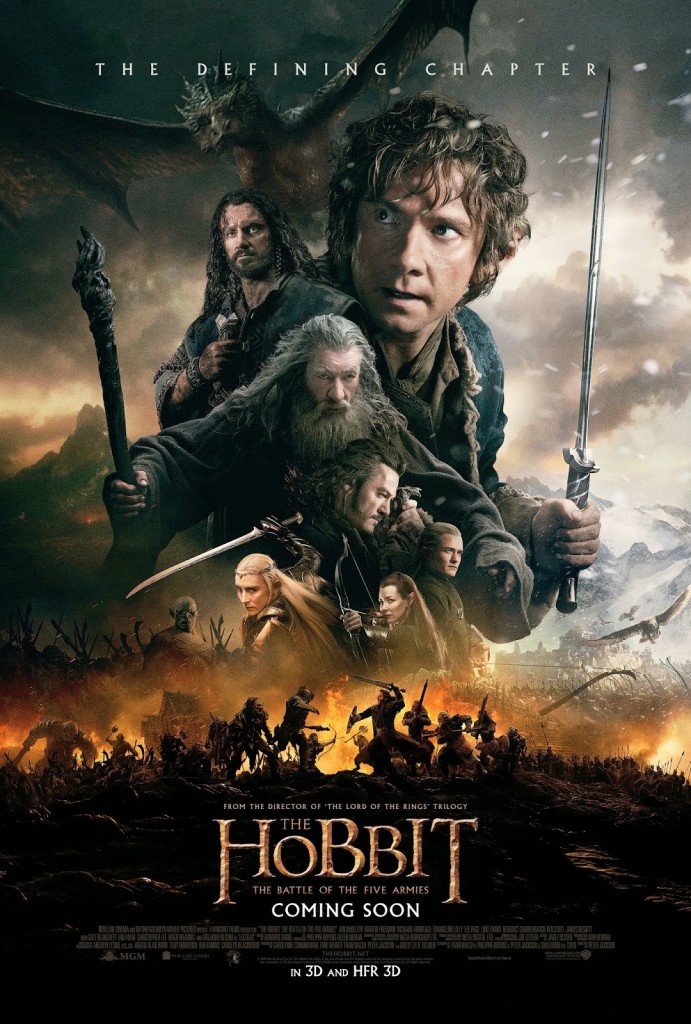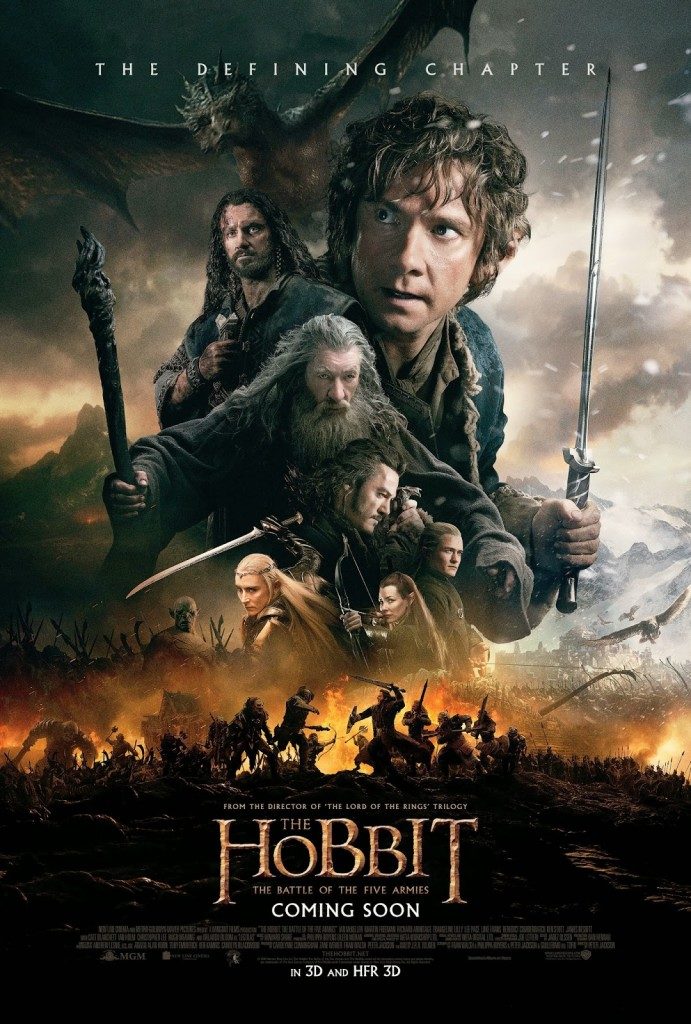Exploring ‘The Hobbit’ Chapter 17: The Clouds Burst
 The last time I read this chapter it broke my heart a little bit.
The last time I read this chapter it broke my heart a little bit.
Maybe I’d forgotten how sad the ending of The Hobbit is. Maybe I myself had invested into the popular myth that unlike The Lord of the Rings, J.R.R. Tolkien’s first published Middle-earth tale is a simple children’s story — the myth that led one Christian radio host upon seeing the first film to remark that he didn’t remember the book being that “dark.”
Oh, it’s dark. Especially when contrasted with the first two-thirds of the book.
In chapter 16, Bilbo Baggins must deal with the fact that Thorin, the would-be returning king, has turned out to be a draconian despot. Legends promised the good king would restore harmony between Dwarves, Men, and Elves, sharing the Mountain’s wealth with all (in modern terms, promoting dynamic economic growth in the whole region). Instead Thorin becomes the worst sort of capitalist, hoarding his gold and abusing his authority.
Smaug is dead at the bottom of the lake. But the dragon is back, and he brings war.
Bilbo is forced to sneak out of Thorin’s stronghold under the Lonely Mountain. The titular Hobbit brings the one object the king wants most — the legendary Arkenstone — to the gathered Elves and displaced Men outside the Mountain. And when Thorin finds out, he is not happy. His response to Bilbo is what broke my heart a little. I expect to cry in the film.
Yes, when it’s battle-time Thorin finally comes around, though in a more “behind the scenes” way that I expect the film version will explore further. But this makes me long all the more for a truly good king, not only in reality but in Middle-earth.
When you read the Gospels, recall this: Jesus is a better savior than Noah, Moses, or David. And when you read The Lord of the Rings, recall this: Aragorn is a better king than Thorin.
Chapter 17: The Clouds Burst
- If you had not read this before, would you have hoped for a heartfelt reconciliation when Bard and his group come back and offer the Arkenstone? Or did you feel this could only make more damage (especially with a chapter title like “The Clouds Burst”?).
- “You miserable hobbit! You undersized — burglar!” … [Thorin] shook poor Bilbo like a rabbit. (page 261) After they got along so well, how does this strike you? (Also: rabbit?)
- “Here is Gandalf! … If you don’t like my Burglar, please don’t damage him.” (page 261) For perhaps one last time, it seems, Gandalf bails out Bilbo. Do you think Thorin would have really thrown Bilbo to the rocks? Why do you think the author went so far as this for the noble Dwarf who is overall still a hero in the story? Should a heroic character do this?
- … So strong was the bewilderment of the treasure upon [Thorin], he was pondering whether by the help of Dain he might not recapture the Arkenstone and withhold the share of the reward. (page 262) Is the treasure at “fault” for his sin, or his response to it?
- Now the Elvenking rejects warring for gold, and instead hopes for reconciliation. After his earlier treatment of the Dwarves and Bilbo, what might be causing this change?
- Just as the others-versus-Dwarves battle starts, dark clouds arrive. Did you expect that?
- Might you wish Tolkien had not skipped over the counsel between Gandalf, Bard, the Elves, and Dain (but without Thorin and his company of Dwarves)? What do you think that scene would have been like? (And do you believe the film version will show it?)
- Some get pumped for a sports games. How do you feel about a righteous fiction battle?
- Aha! At the last Thorin comes around and joins the (mostly) good armies. But why didn’t the author tell us what Thorin’s reaction was to the goblin invasion, the counsel with the newcomer Dain, and why Thorin had refrained from the battle until now?
- Why does the story have Bilbo “vanish,” at first quite literally? (Some also accused the first Hobbit film of ignoring Bilbo). Would you have preferred following Bilbo more?
- Bilbo says he wishes that Smaug had kept the treasure. (page 271) Do you agree?





























Not really sure Thorin didn’t have a point. His people created all that wealth, and were killed or driven into exile by Smaug. Bard has a claim because his arrow slew the dragon, but neither Laketown nor the elves gave the company any real, material help. So in Thorin’s eyes, everyone suddenly showed up demanding a share of the treasure his father was killed over despite them doing little or nothing to actually help the dwarves both in their flight from Smaug or in their revenge against him.
Bilbo realizes that Thorin has to give this up for the sake of peace beyond him, and he really did betray Thorin in order to do so. That Thorin realized this was right to do doesn’t really erase that. I think sometimes we don’t realize that it’s not always a wrong thing a king gives up to be kingly. He has to give up his own needs and claims too.